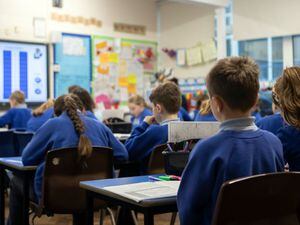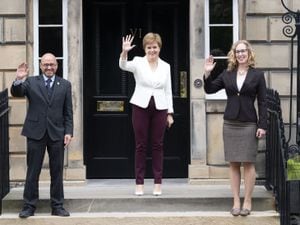Commission chair accused of ‘putting positive spin on slavery and empire’
Tony Sewell led the Commission on Race and Ethnic Disparities review.

The chairman of a Government-backed review of racial disparities in Britain has been been accused of putting a “positive spin on slavery and empire” when explaining its recommendation on teaching history in schools.
The Commission on Race and Ethnic Disparities report published on Wednesday proposes a Making Of Modern Britain teaching resource to “tell the multiple, nuanced stories of the contributions made by different groups that have made this country the one it is today”.
In commission chairman Tony Sewell’s foreword to the report, he said the recommendation was the body’s response to “negative calls for ‘decolonising’ the curriculum”.
He wrote that the resource should look at the influence of the UK during its empire period and how “Britishness influenced the Commonwealth” and how local communities influenced “modern Britain”.
He added: “There is a new story about the Caribbean experience which speaks to the slave period not only being about profit and suffering but how culturally African people transformed themselves into a remodelled African/Britain.”
Highlighting the passage on Twitter, Labour’s shadow women and equalities secretary Marsha de Cordova said it was “one of the worst bits” of the report.
She tweeted: “Putting a positive spin on slavery and empire.
“Published on a Government website in 2021. Is this for real?”
Halima Begum, chief executive of race equality think tank the Runnymede Trust, said: “Comments about the slave trade being a Caribbean experience, as though it’s some kind of holiday… this is how deafening it is, cultural deafness, it’s completely out of kilter with where British society is I believe.”
Kevin Courtney, joint general secretary of the National Education Union (NEU), said the report was “out of step” with public opinion, teachers and black parents.
He said: “There is a huge call from the public to tackle inequality around racism and sexism and to build a fairer world after this pandemic. The NEU has recruited many schools to use our anti-racist framework and we publish teaching materials which advance race equality.
“Education must be a space where the stereotypes and myths that cause racism and racial profiling can be talked about and challenged. Teachers need much more training, especially student teachers, so the profession is confident to respond to these important social issues.
“Many young people experience racism. Every student needs an anti-racist education, especially when you consider the hateful and harmful content online which is being targeted at young people.”
He said it was “urgent all black students can access a positive, engaging and representative curriculum”, adding: “Black staff face discrimination and there is an ethnicity gap in education, and so we need to be open and upfront when talking about racism, its roots, and the deeply embedded discrimination that is still prevalent because of racism in Britain today. ”
In his foreword, Mr Sewell argued that “neither the banning of white authors or token expressions of black achievement will help to broaden young minds”.
He added: “We have argued against bringing down statues, instead we want all children to reclaim their British heritage.
“We want to create a teaching resource that looks at the influence of the UK, particularly during the empire period.
“We want to see how Britishness influenced the Commonwealth and local communities, and how the Commonwealth and local communities influenced what we now know as modern Britain.
“One great example would be a dictionary or lexicon of well-known British words which are Indian in origin.”





